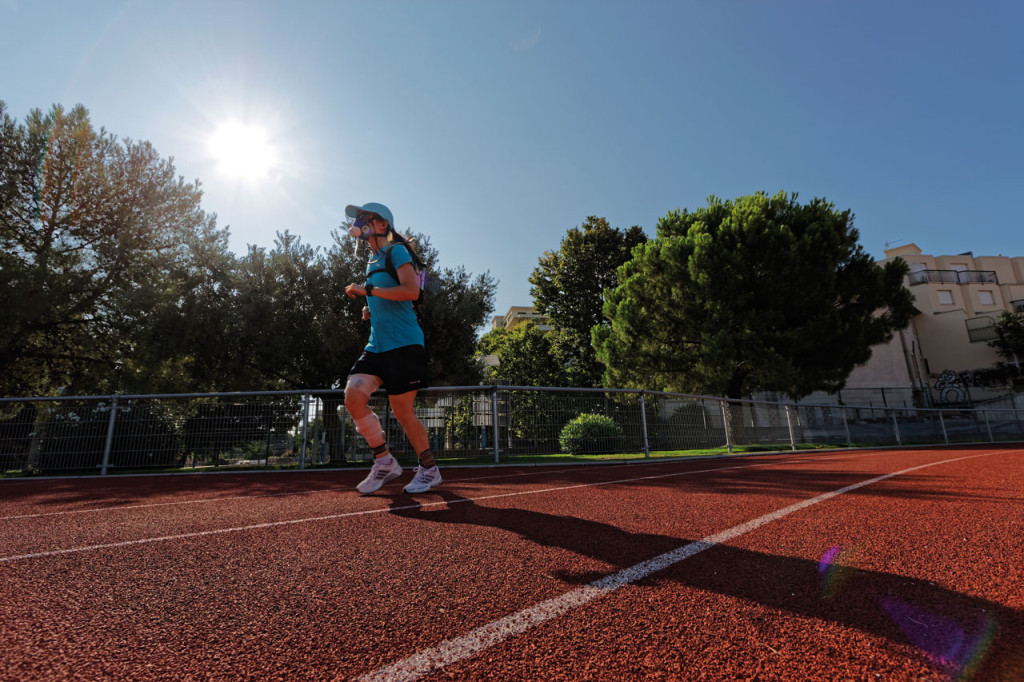[LUM#1] Forward with the music
It can improve the performance of athletes. Music has hidden virtues, which researchers at the EuroMov center are also using for therapeutic purposes...

Take two marathon runners of strictly equivalent ability. Put them together at the starting line, one with music in his ears, the other without. Some 42.195 kilometers later, the first will cross the finish line 3 minutes before his opponent. Why should this happen?
Run faster and walk better
"Music has a motivating effect and makes you forget about pain, but that's not the only explanation. Athletes synchronize their stride with the musical tempo, which stabilizes their running and reduces oxygen consumption by 4-5%," explains Benoît Bardy, founder of the EuroMov center and coordinator of the BeatHealth project. The aim of this international project, launched in 2013, is to study the benefits of rhythmic stimulation in improving gait and mobility.
What might be the link between music and running? "The brain structures involved in movement and perception mechanisms are the same," answers Simone Dalla-Bella, the project's scientific leader. These same stabilizing virtues of music are also being studied by the BeatHealth project in a therapeutic context. The aim is to help Parkinson's patients get around. Forty patients have taken part in the experiment, and are delighted with the improvements they have seen. "We hope to reduce the number of falls, and the results are very promising", enthuse Benoît Bardy and Simone Dalla-Bella.
A question of tempo
Is listening to music enough to improve sports performance or walking in Parkinson's patients? "Not so simple", say the researchers. Because to obtain these results, the music's "bpm" (beat per minute), its tempo, must be adapted to that of the run. "When a runner encounters a hill, he slows down and his rhythm is no longer synchronized with the music, which then has the opposite effect and destabilizes his running. In the same way, if a Parkinson's patient has to get around an obstacle, he changes his walking rhythm and the music can destabilize him."
The solution? An intelligent application that adapts rhythm to movement to enhance motor performance. "We want to offer a smartphone app for athletes and a tablet version more suited to the elderly". The researchers hope to bring this product to market by the end of the BeatHealth project scheduled for late 2016. "The app won't just be aimed at runners, it could also enable other sportspeople such as cyclists or swimmers to stabilize their running to boost their performance," Benoît Bardy points out. An app with a strong argument: scientifically proven effectiveness.
UM podcasts are now available on your favorite platforms (Spotify, Deezer, Apple podcasts, Amazon Music...).